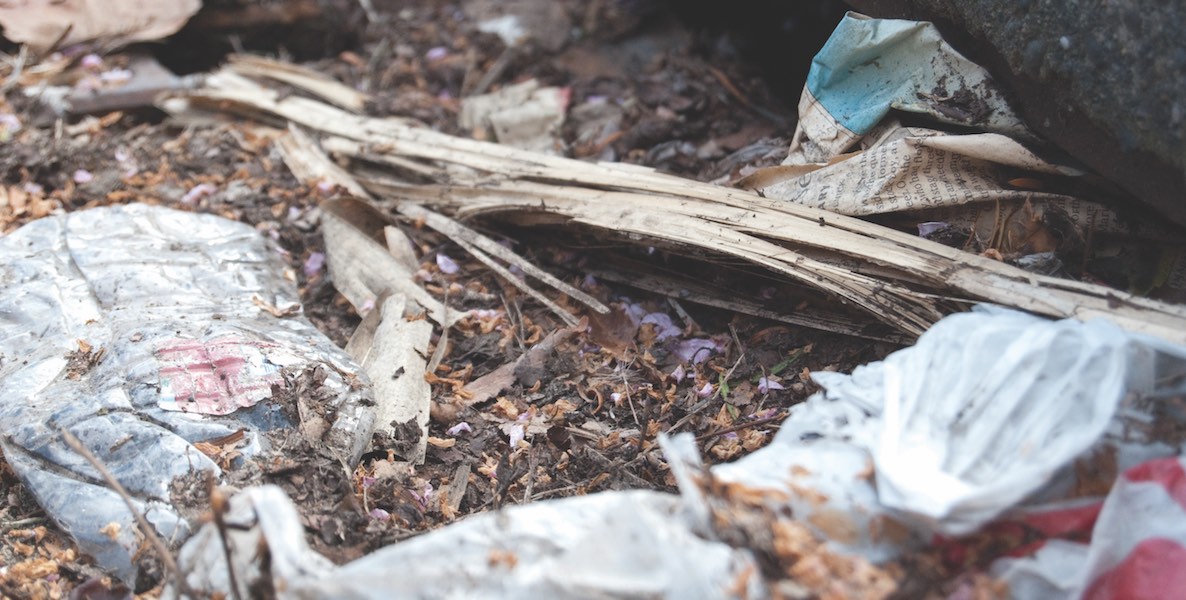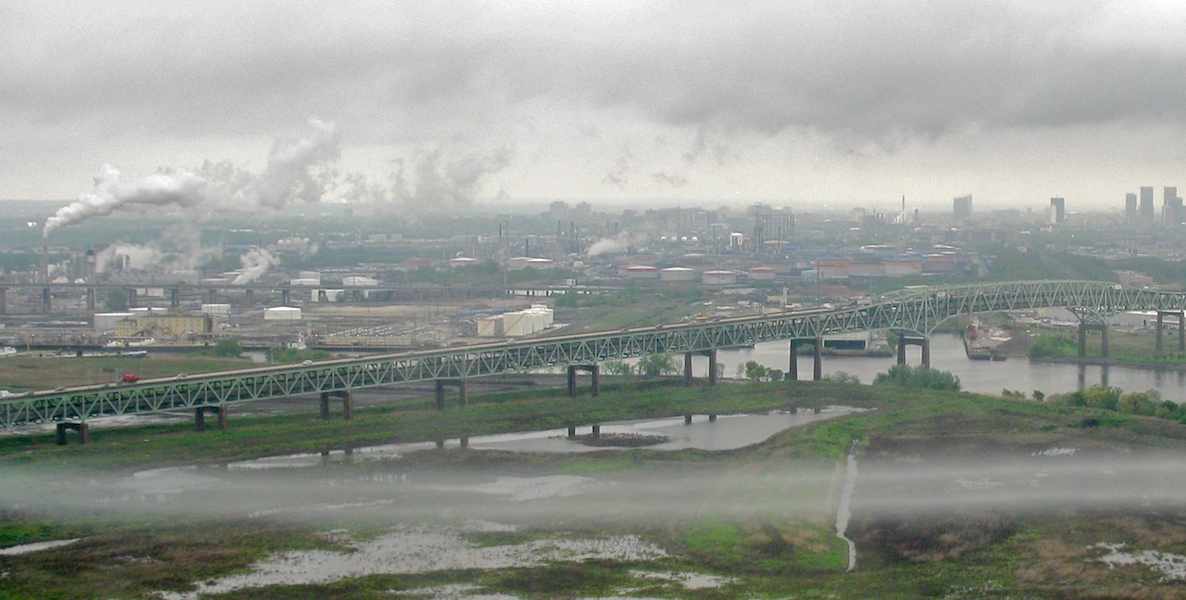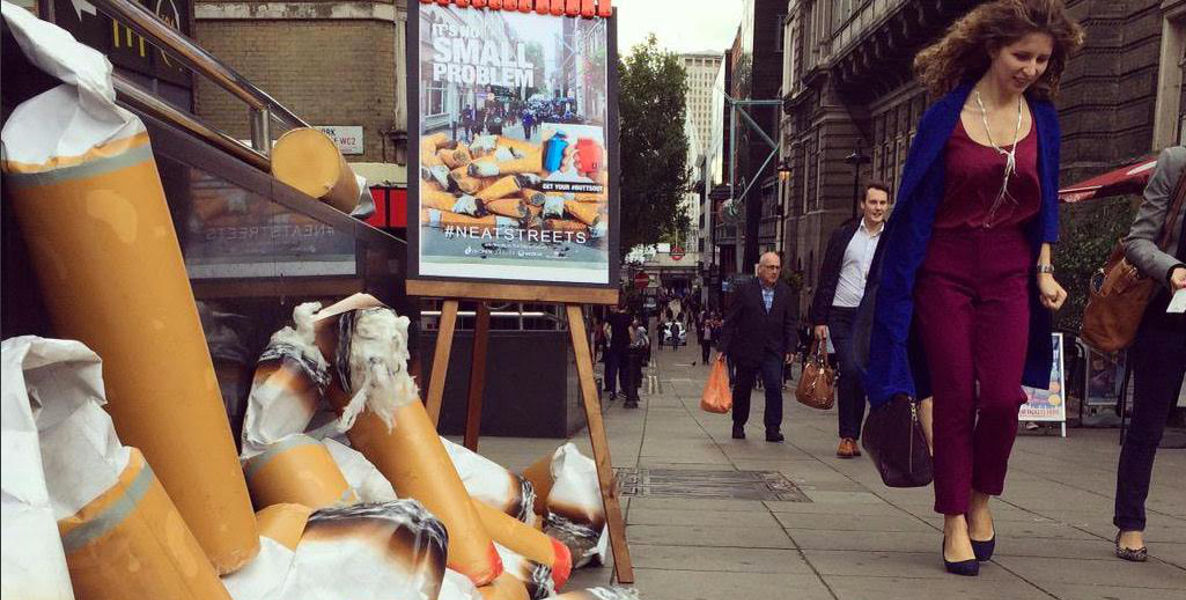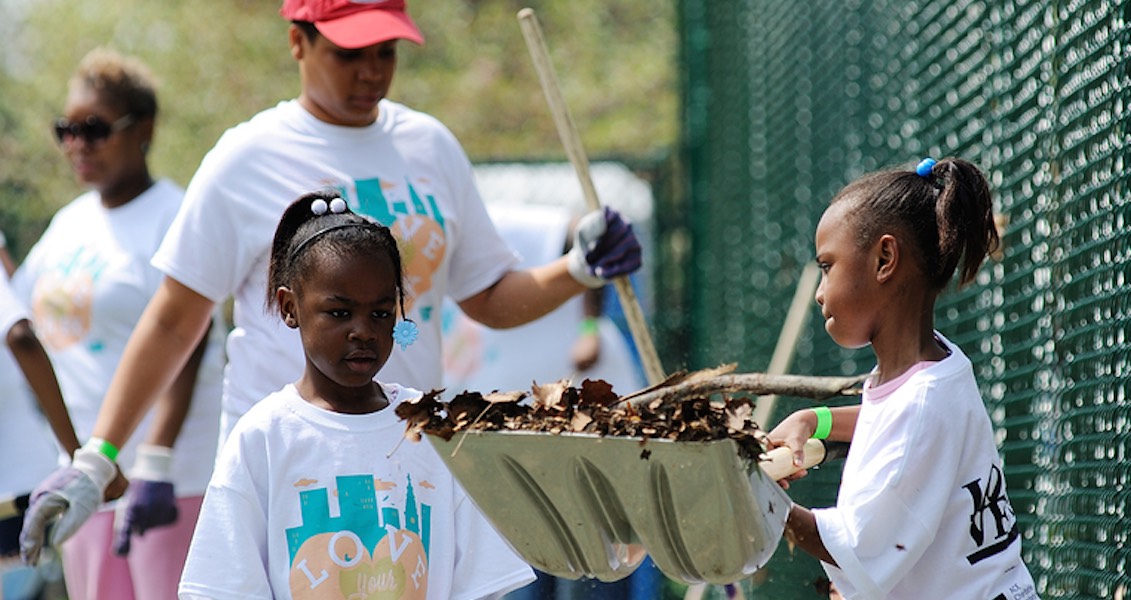Jasmine Hamilton always considered herself a grower. Raised in East Chicago, Indiana, her calling to work the earth’s soil stemmed from her midwestern roots—cultivated by long, sun-drenched days working on a farm with her grandmother.
When Hamilton moved to Philadelphia in 2003 to attend Moore College of Art and Design, she was surprised to see sustainable farming and gardening practices from home being implemented in the city, too. The longer she lived in the region, the more she saw people practicing urban agriculture—nestling community gardens within backyards, on top of rooftops, in vacant lots and just about every open space they could find and get their hands on.
Hamilton, who is the outreach coordinator for Farm Philly and an active member of Philadelphia Food Advocacy Committee, Philadelphia Area Cooperative Alliance and Soil Generation, started to wonder if her work might be part of something bigger; part of a movement to ensure all individuals live quality lives. Little did she know, the movement was about to experience a big boost through a new city plan called Greenworks.
In 2009, as Hamilton developed her work as an educational farmer teaching children in underserved communities how to grow their own food, then-Mayor Michael Nutter worked on upholding his inaugural promise to make Philadelphia the greenest city in the country. He opened the Mayor’s Office of Sustainability (OOS) and created Greenworks, a comprehensive sustainability plan encompassing the very movement Hamilton was now part of. Partly modeled after a successful New York City initiative called PlanNYC, Greenworks offered 15 sustainability targets with intricate success metrics in five alliterative areas: energy, environment, equity, economy and engagement.
“When government demonstrates through a plan or policy what their goals are, it’s easier to have a sense of where we can go together,” says Anna Shipp, executive director of Sustainable Business Network. “Greenworks offered a much friendlier conversation about what our city can look like. If the city didn’t have a comprehensive sustainability plan, then our work would have a different focus. But because they named sustainability as a priority, our work pivots to how we can accomplish the vision.”
In what may be one of Nutter’s signature achievements as mayor, Greenworks achieved several critical goals during its time under the administration, including transforming the city’s stormwater management efforts. Despite the success, Hamilton doesn’t remember hearing much about those early years; a 2015 Greenworks progress report offered an explanation why: The plan didn’t do a great job of making goals relevant to the everyday Philadelphian. As Mayor Kenney took office and his administration conducted their own research, feedback from town halls, online surveys and social media churned up similar results.
“We heard from folks that understanding the state of sustainability and progress on a basic level was important, but we also heard they felt Greenworks was really inaccessible,” says current OOS Deputy Director Sarah Wu. Many residents wanted to see themselves in the plan, not just the numbers.
The Kenney administration released Greenworks: A Vision for A Sustainable Philadelphia in November 2016, tweaking Nutter’s environmental goals with a series of “visions” that start with the words “All Philadelphians…”—as in, “All Philadelphians have access to healthy, affordable, and sustainable food and drinking water.”
It also created Greenworks On The Ground. Part-Sparknotes and part-grocery list, the guidebook offers a summary of each vision along with special “take action” checklists for individuals, communities and institutions.
“Having a strong community is the basis of having a sustainable community,” says Wu. “If you know your neighbors, you’re less likely to throw trash on the ground. If you know your neighbors, you’re more invested in creating a place that is helping everyone. If you know your neighbors, you can learn from them and find more ways to improve together.”
“People on the ground are important players in achieving our Greenworks visions because their expertise in how their communities work and what their communities care about gives them a deep understanding of how to prioritize and accomplish sustainability work in Philadelphia’s many contexts,” says Wu.
Through her current work, Hamilton knows a lot of communities. She says the tasks outlined in Greenworks on The Ground are both clear and doable for most Philadelphians. They’re also imperative for the future. “The work we do does not just change people in this lifetime,” says Hamilton. “It also changes people in lifetimes to come. When we give people seeds to grow, we’re giving people tools they can walk away with.”
In honor of Earth Day, we’ve hand-picked eight small actions from Greenworks on The Ground to help you get started—or continue—greening your city. As Hamilton says: “Take it, and go make your own from it!”
Vision 1: All Philadelphians have access to healthy, affordable, and sustainable food and drinking water
Earth Day Action: Grow your own food by starting or joining a community garden.
Why It Matters: “We create food systems so we can take back our power of choice and create healthy options for underserved communities,” Hamilton says.
Vision 2: All Philadelphians breathe healthy air inside and outside
Earth Day Action: Put some houseplants in your home to help filter harmful indoor air pollutants.
Why It Matters: “I’m really happy to see a shift in focusing on both outdoor and indoor air quality,” says Alex Dews, executive director of Delaware Valley Green Building Council and a former OOS staffer during the Nutter administration. “The thing about green building that people don’t know is we focus a lot on indoor air quality and carefully removing asthma triggers.”
Vision 3: All Philadelphians efficiently use clean energy that they can afford
Earth Day Action: Consider switching to an electricity provider that provides up to 100 percent renewable energy. More at PAPowerSwitch.com.
Why It Matters: According to Wu, the City’s municipal energy master plan will be released in late summer or early fall of this year with a goal of reducing carbon emissions 80 percent by 2050. Using clean energy is a part of that.
Vision 4: All Philadelphians are prepared for climate change and reduce carbon pollution
Earth Day Action: Take a few minutes to develop an emergency plan for extreme weather—and remember to include a checkbox for looking in on elderly neighbors.
Why It Matters: “Knowing your neighbors can save lives,” says Wu. “It sounds dramatic but it’s true. For example, as the climate changes we know it’s going to get hotter and wetter outside. We also know communities where people have social relationships have fewer heat-related deaths when there’s a heatwave.”

Vision 5: All Philadelphians benefit from parks, trees, storm-water management and healthy waterways
Earth Day Action: Commit to caring for our city beyond Earth Day; register for a Love Your Park clean-up on May 13.
Why It Matters: “If you’re improving parks and recreational facilities and public spaces then you’re helping more than just the Greenworks plan,” says Shipp. “You’re creating environment, economic and social benefits for all.”
Vision 6: All Philadelphians have access to safe, affordable, and low-carbon transportation
Earth Day Action: Take a stroll around your neighborhood to identify and report unsafe road or sidewalk conditions (i.e. potholes, gaps in sidewalk) by calling 311 or online through phila.gov/311.
Why It Matters: Walking is a great way to reduce carbon pollution, improve air quality and gain health benefits. Why not alert the city of infrastructure pain points while you’re at it?
Vision 7: All Philadelphians waste less and keep our neighborhoods clean
Earth Day Action: Sign up for a local service to compost your food scraps and yard waste.
Why It Matters: According to the USDA, food waste is estimated at between 30 to 40 percent of the food supply in America. Composting repurposes food waste, and keeps it out of the landfills.
Vision 8: All Philadelphians benefit from sustainability education, employment and business opportunities
Earth Day Action: Spread the word about ways to clean up and green up Philly. Follow and share Greenworks on social media (@GreenworksPhila), encourage your neighbors to order a free city tree, support local sustainable businesses, help each other keep a cleaner street.
Why It Matters: “Having a strong community is the basis of having a sustainable community,” says Wu. “Participate! You don’t need a special degree to know your neighbors. If you know your neighbors, you’re less likely to throw trash on the ground. If you know your neighbors, you’re more invested in creating a place that is helping everyone. If you know your neighbors, you can learn from them and find more ways to improve together.”






